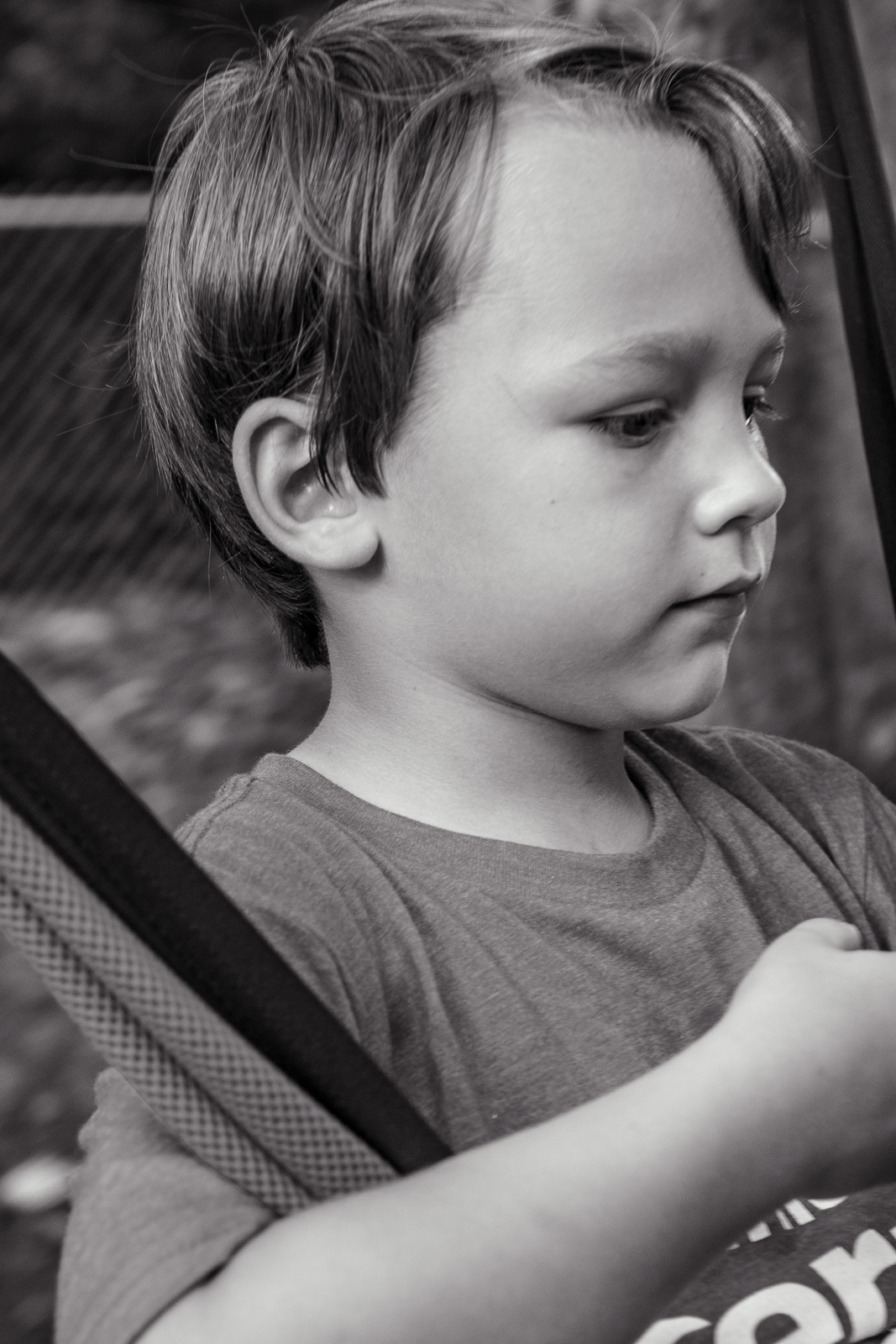

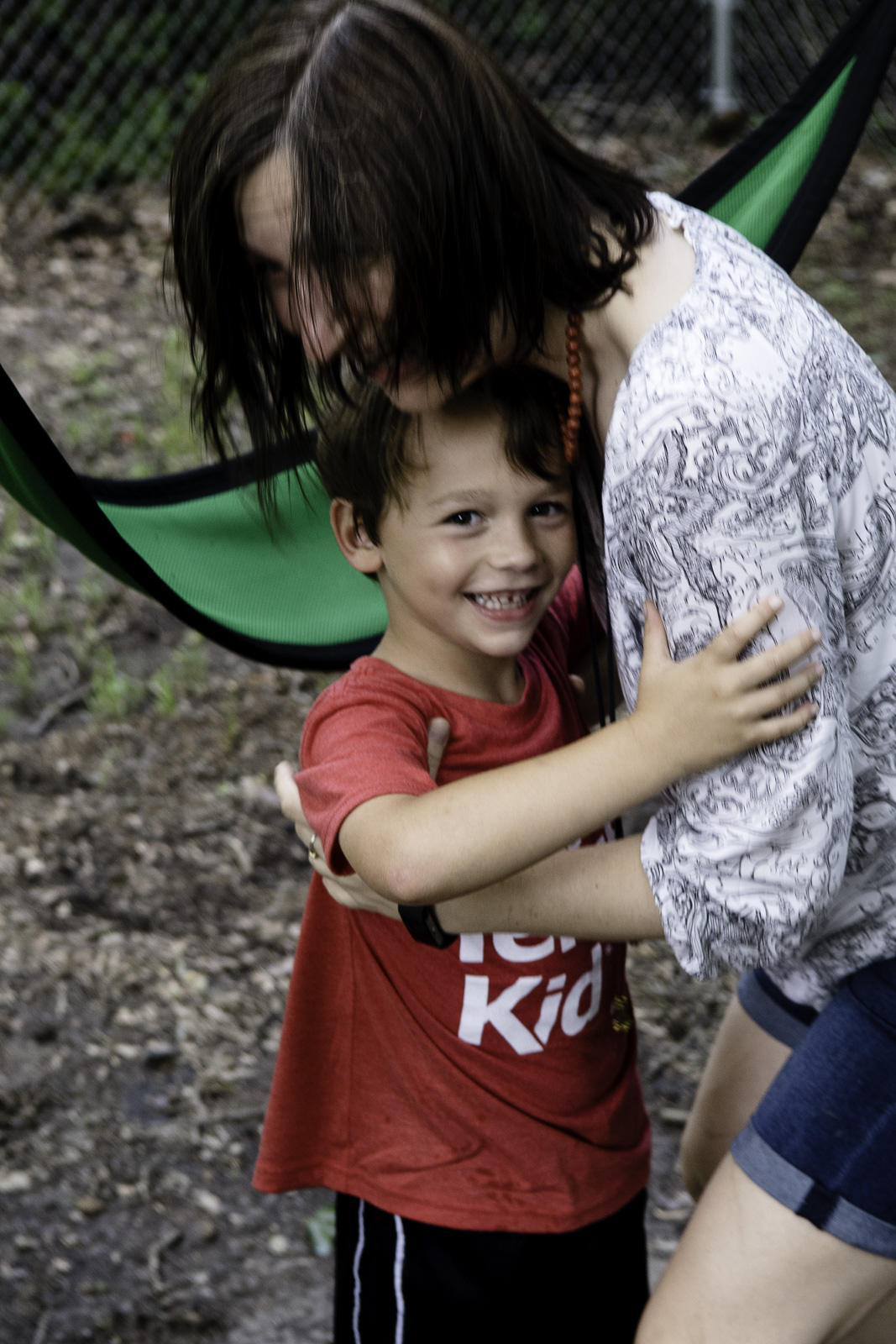





Dear eighth graders,
As a teacher, it can sometimes be hard to remain optimistic. Every year there are those students who try one’s patience, who test one’s resolve, who feel they are incapable of doing anything good and seem determined to bring everyone down with them. And then there are just the immature attention-seekers who do anything they can to be the center of attention. Within the first class period or two, I can usually tell who all these folks are, and the rest of the year becomes a battle with their stubbornness as I try to help them see that their behaviors and choices are not only not helping them but in fact detrimental. Some never see the light, at least during this school year, and that’s why it can be difficult to fight the pessimism: those students left just as they came in, and I wonder if I helped them at all.
This year is one of the few in recent memory that is devoid of any such students. Sure, some of you tried my patience at times. Some of you sought attention in inappropriate ways. Yet all of you—each and every student—showed growth and maturity this year, and it has been a true privilege to work with you this year. I can honestly say this has been one of the best years I’ve experienced in my nearly-twenty years of teaching. I’ve seen growth in reading skills, gains in emotional maturity, a surge of confidence in cognitive ability, and most importantly, an increase in maturity in so many of you that it gives me real hope for the future.
Many of you developed new reading and thinking skills that help you approach problematic texts in new ways. Instead of throwing up your hands and saying, “I don’t get it,” you dig in and figure out some meaning, understanding that you don’t have to comprehend everything perfectly in order to understand the text as a whole. That kind of persistence will serve you well in the future, and I am very pleased to see that so many of you developed that newly-found tenacity.
Several of you noticeably grew emotionally over the course of the year. You learned to keep your anger in check, to keep your frustrations from determining your path, and to see yourself as in control of your own life. This is one of the most rewarding aspects of teaching eighth grade: kids genuinely mature in a very clear way over the course of the year, but some of you seemed to grow emotionally two or three years. Belligerence gave way to cooperation; fatalism gave way to self-confidence; apathy gave way to self-concern. Instead of worrying how you’ll make it emotionally in high school, I find myself calmly confident about how you’ll handle the challenges of high school.
Many of you became observably more confident in your cognitive abilities. You came into the class thinking that perhaps you couldn’t do the work, that perhaps things might be a bit more challenging than you’d expected, or that it would be just the same struggle as it always is. Instead, you found that your success doesn’t come just from your intelligence, which most of us underrate anyway. Most success comes from behaviors and decisions, and as your behaviors and decisions changed, so too your view of your own intelligence, and that self-possession produced still more confidence.
Finally, almost all of you grew more mature as the year progressed. You began handling challenges like an adult. You started accepting disappointments with calmness. You learned to set goals and priorities, understanding that achieving those aims often requires sacrifice.
To those of you who chose not to live up to your fullest potential, I can only say that I hope at some point in the not-too-distant-future you make the changes necessary for your success. Hard work and focus are never wasted, and it is through challenging ourselves that we grow stronger. Fortunately, you’re only a young teen: there’s still plenty of time to grow into this adult thing.
To those of you who did your best in this and other classes, thank you. Your focus and hard work are rewards in and of themselves, and they bring rich dividends, but I’ll willingly (and somewhat selfishly) admit that they make my job easier.
I have only one wish for you as this year closes out: I hope that you can look at your life at any moment and truthfully say to yourself about yourself, “I am doing the best with what I have where I am.” If you can always say that about yourself, the brightest of futures awaits. Thank you again for a wonderful year.
Best regards,
Your teacher
Clover began barking aggressively around eight this morning.
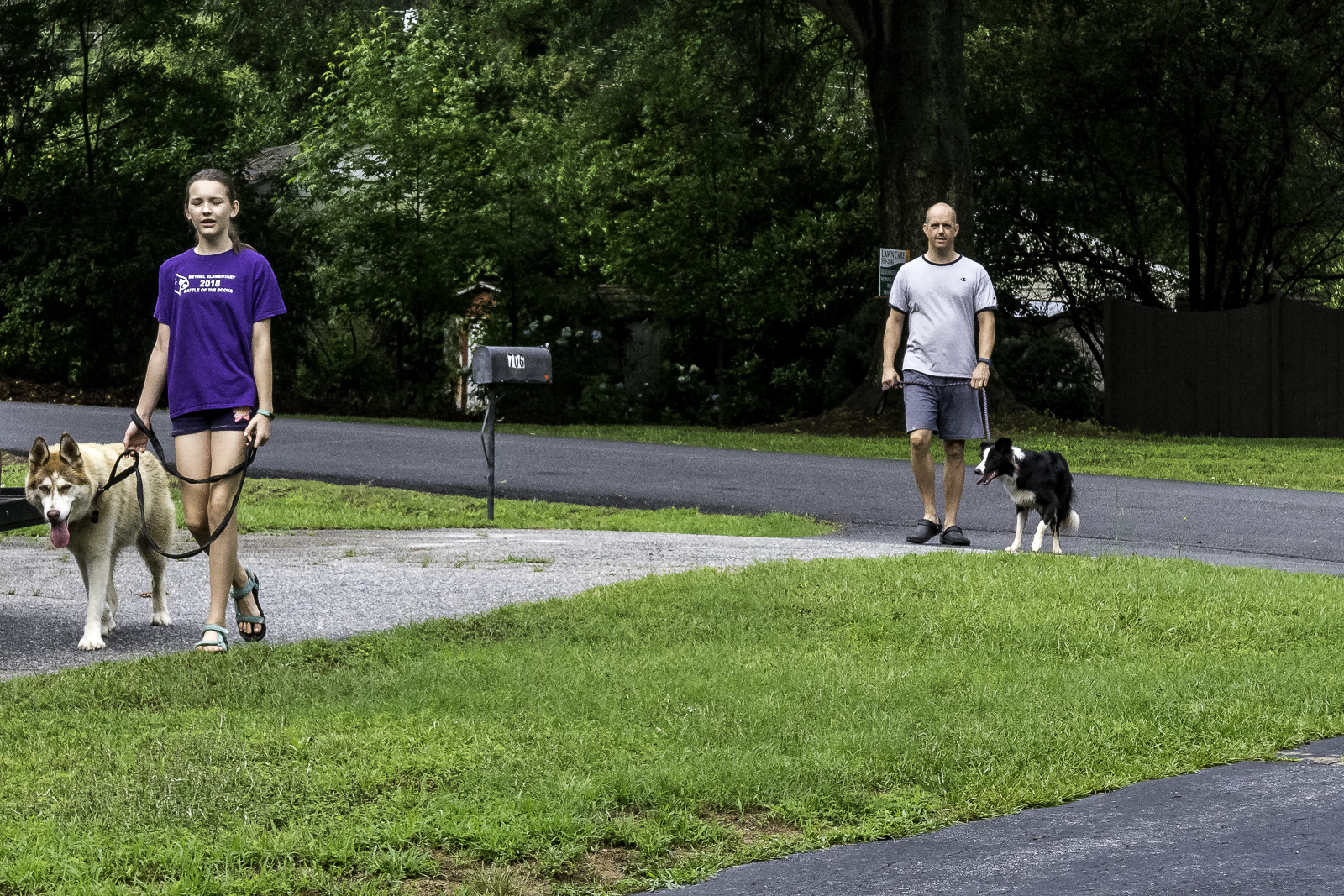
She rarely barks, and when she does, it’s not an aggressive bark.
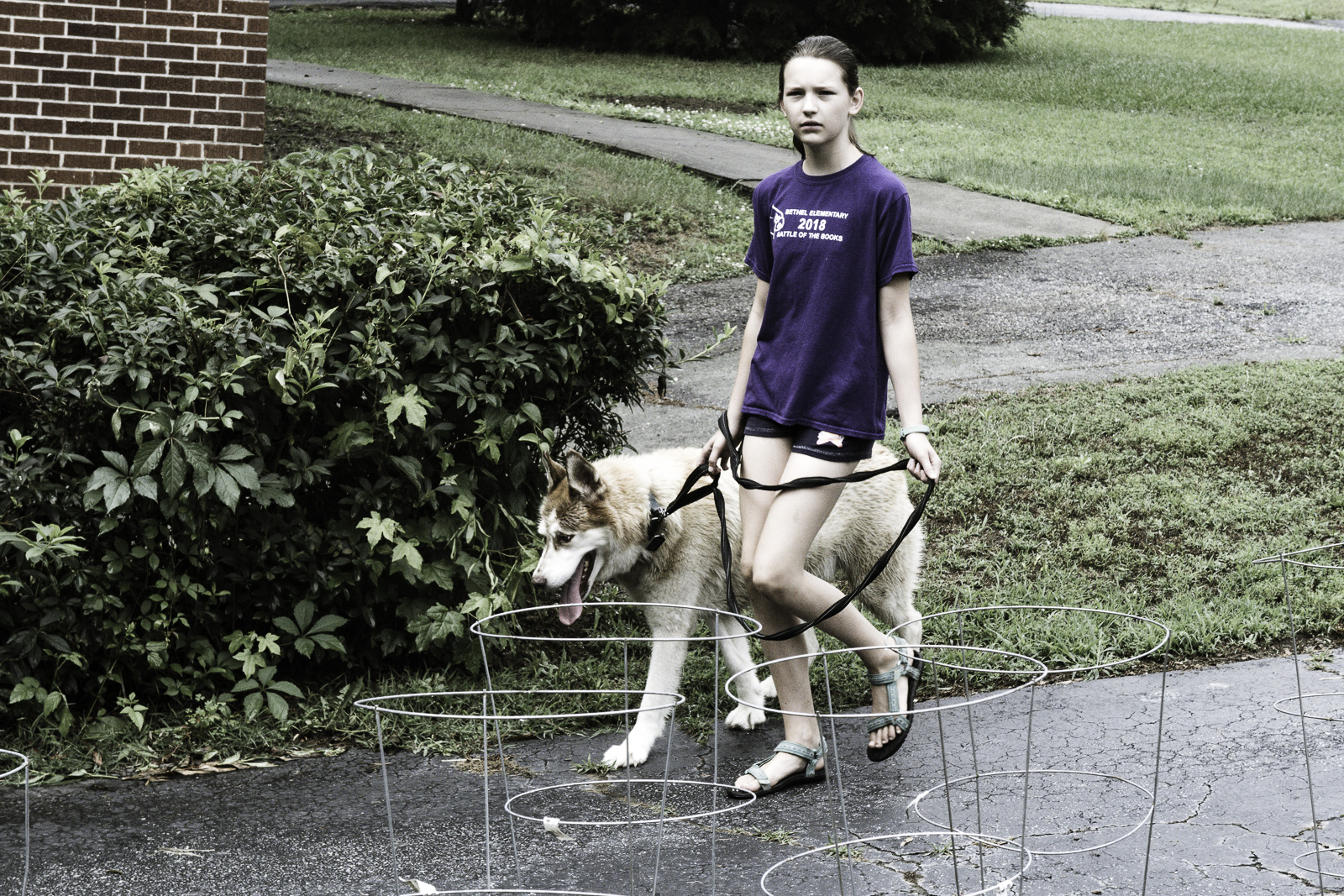
The cause: a visitor — a sweet huskie named Phoenix with a calm demeanor and a tag with a phone number and an email address.
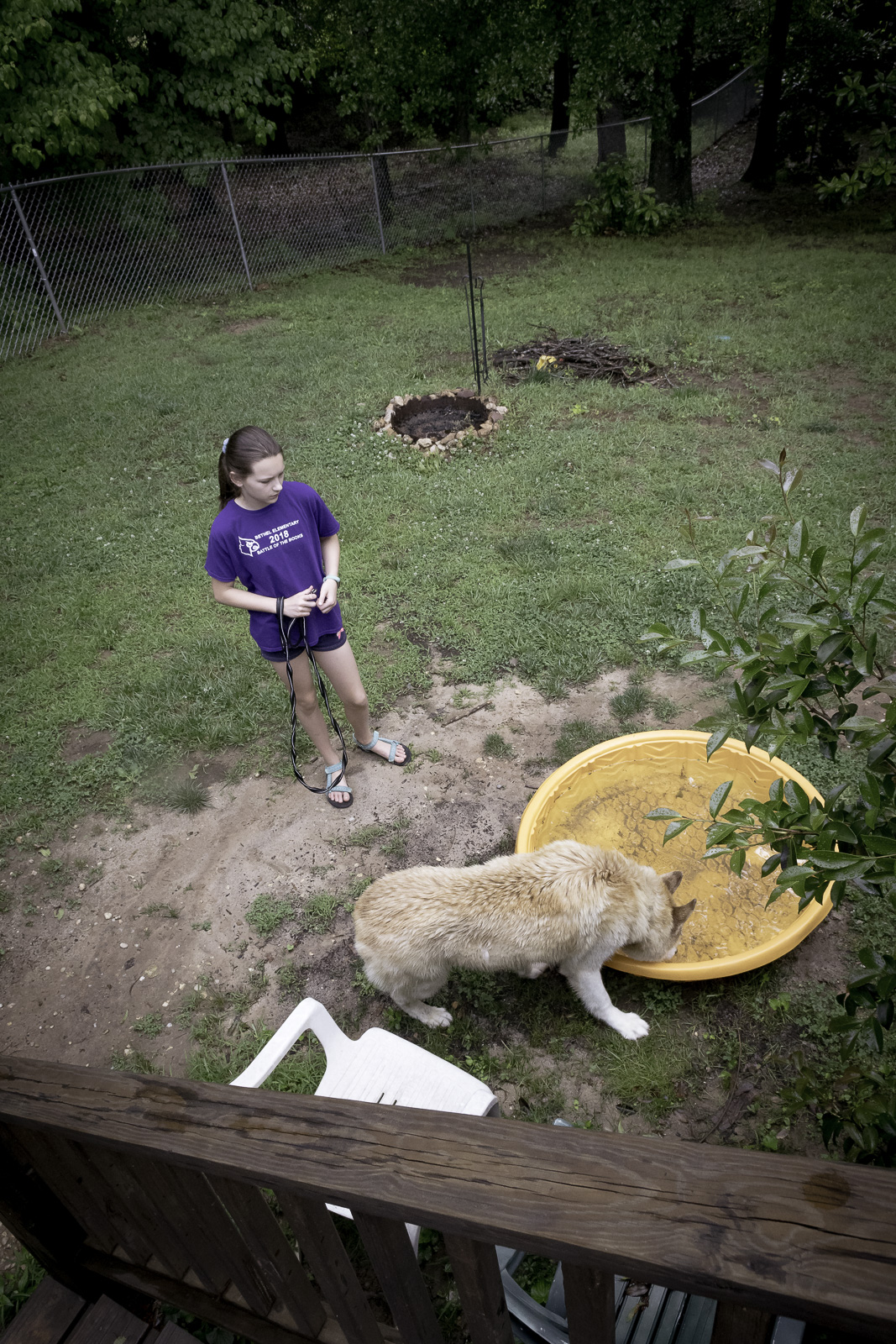
The owner was out of town; someone was supposed to be stopping by to feed Phoenix.
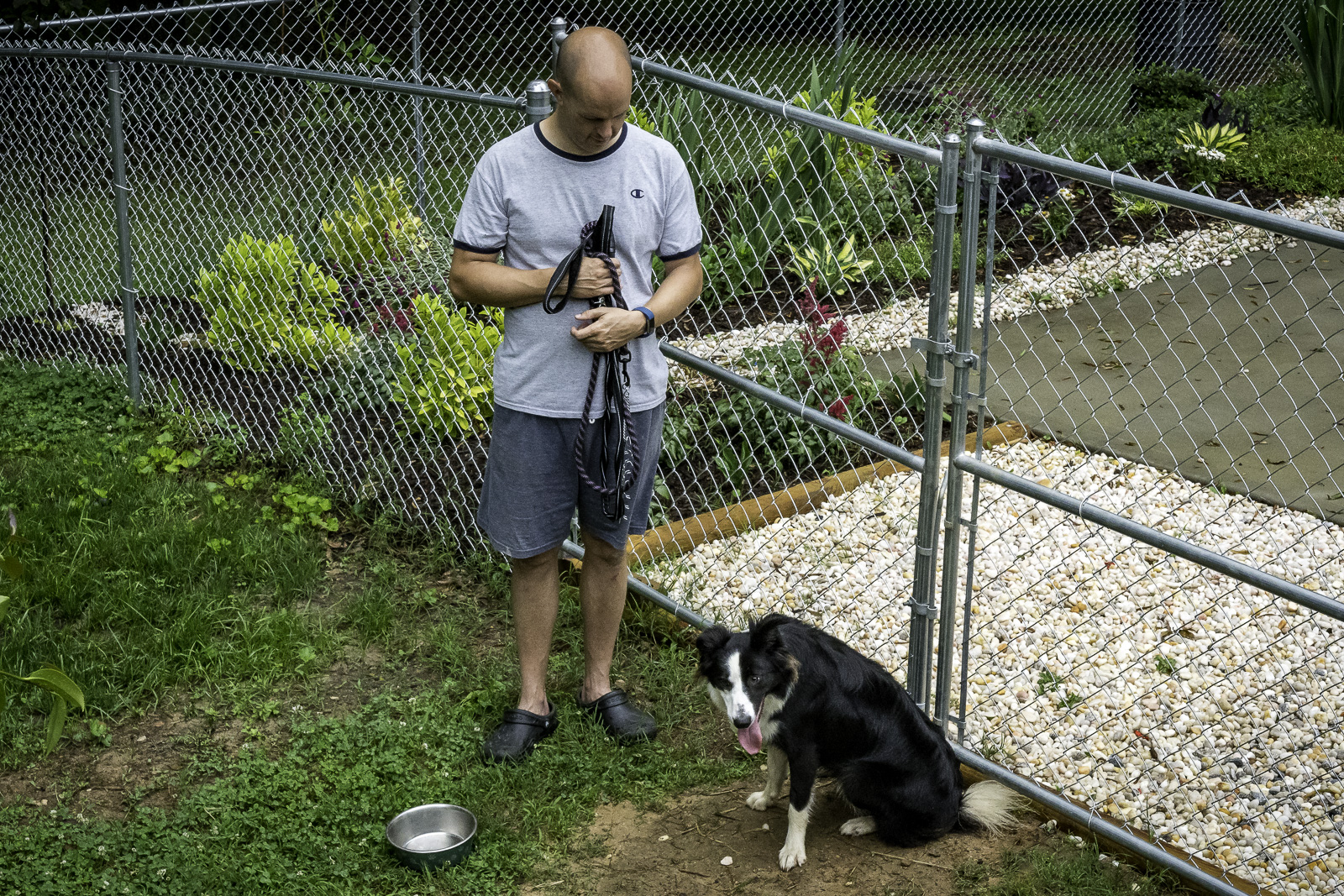
We kept him in our backyard until early afternoon.
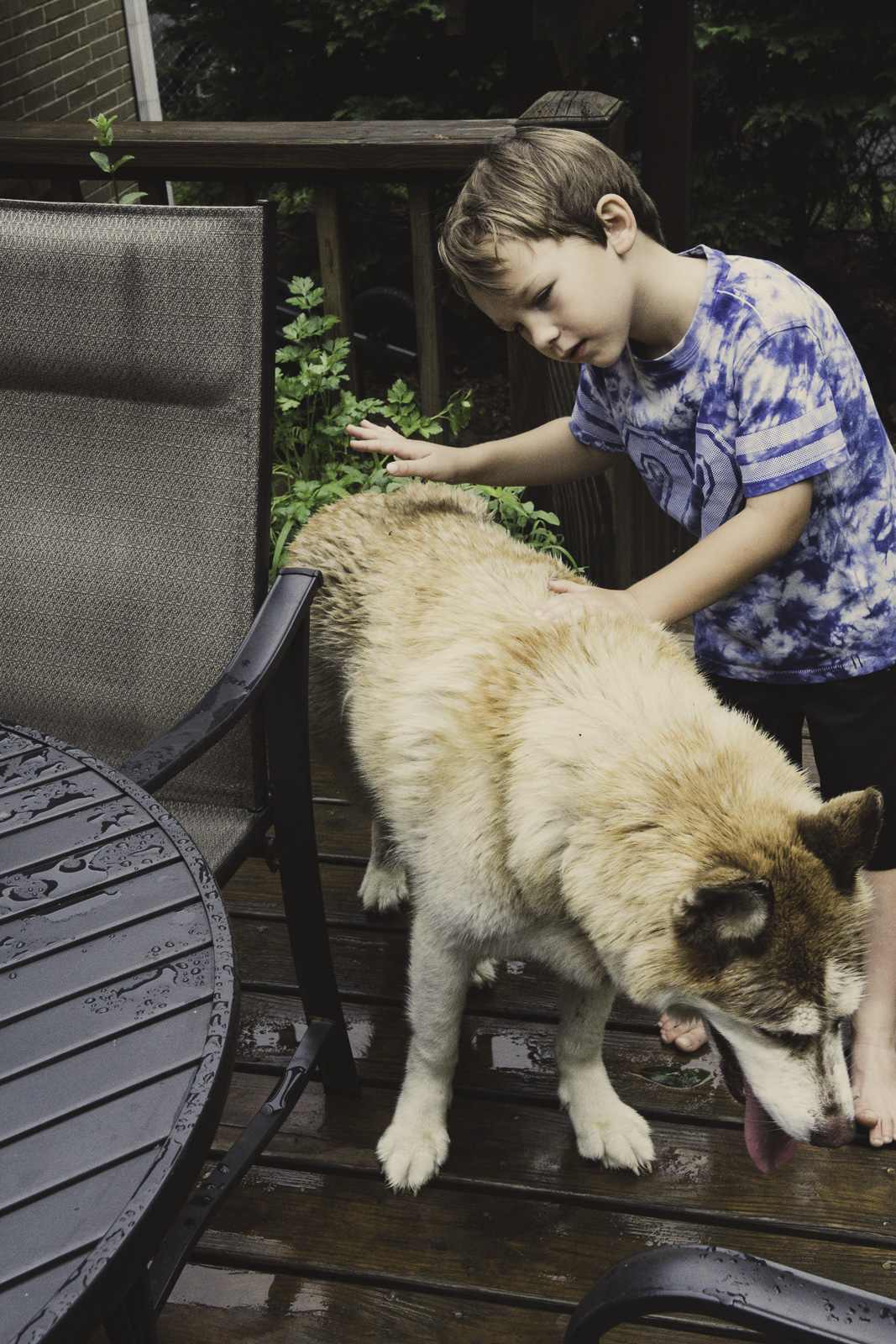
Clover was not at all happy about it at first. She was terrified for a good half hour. We kept them apart with leashes during that time, then decided it might be a good idea to take them for a walk together. By the time we got back home, Clover was no longer scared. Indeed — she just wanted to play herding with Phoenix, who was not too eager to take the role of a sheep.
They dread and fear it all year. It’s always lurking under every question, every assignment, every activity. It’s the biggest and most significant English test they’ve ever taken: the End of Course Exam, or EOC. A state-mandated, state-created test that counts as 20% of English I Honors students’ final grade. A truly high-stakes test. It’s a stressful test for them.
And for me: a previous principal reassigned a teacher’s English I Honors classes to another teacher because her classes’ scores weren’t to his satisfaction. That’s the rumor, at any rate. While I’ve never worried that my students’ results would be dismal enough to merit such draconian measures, I always worry. The test is, in my eyes, a measure in part of my success as a teacher. Sure, it’s more the students, but I have to present the information. I have to guide the kids through the mandated standards.
Today, we got back the scores. With a mean of 89.04 (one point shy of an A), it meant that a lot of kids left with smiles. It’s not often that I deliver such good news.
The Boy, for Tata/E time, chose again to go for a bike ride, and we began the ride in a similar fashion: the big downhill in the neighborhood across a couple of streets, the downhill that I keep encouraging him to turn into an uphill.
“I can’t ride up this hill!” he explained with exasperation. “It’s huge!”
But we rode up other hills, which are often as steep as The Hill but not as long. On one, the gave out quickly. With some encouragement, he got back on his bike and continued the climb.
“Remember: lean into the climb,” I advise as we churn our way up.
“Remember: forget about how far it is to the top. Pick a point in front of you and make it to that point. Then pick another point. And another.”
We made it to the top, and the Boy exclaimed rather stoically, “That wasn’t bad at all.”
When we got back home, we discovered some visitors have returned.
The Girl had her first volleyball game today. It was as one might expect when the majority of the girls playing haven’t had much experience on the court. Most volleys were one of three types:
Not a lot of action. But a lot of excitement: the girls were all thrilled when they managed to make a serve (which actually happened quite frequently); they were shouting encouragement and joy when they managed to return a serve; they encouraged each other when someone messed up.
It was a beautiful thing to watch.
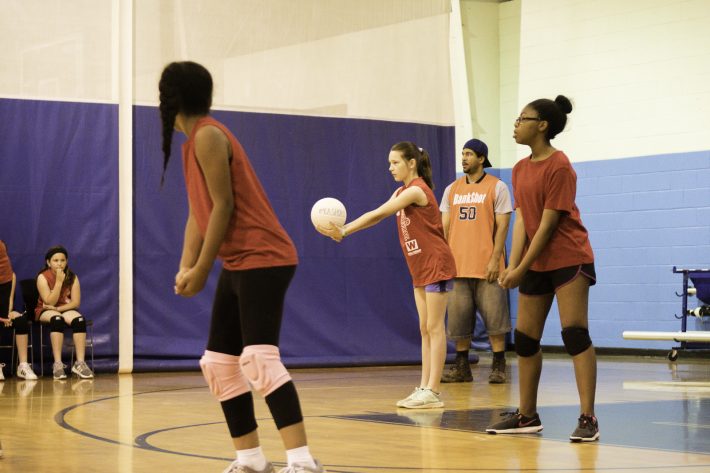
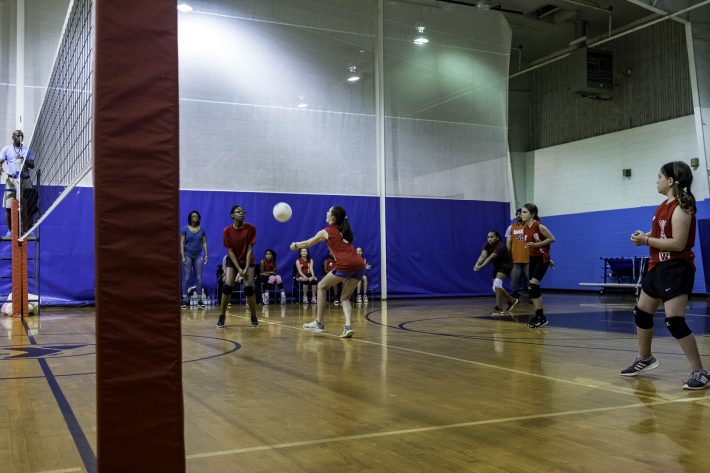
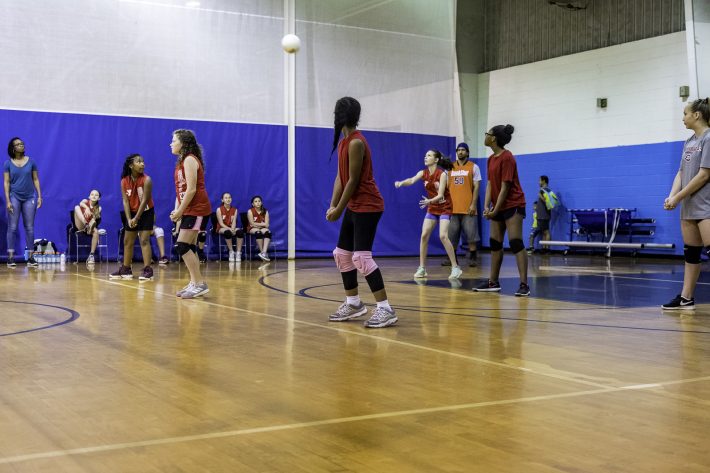
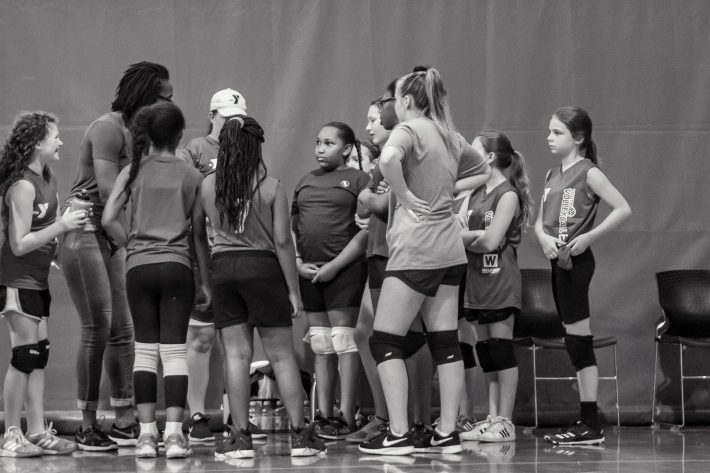
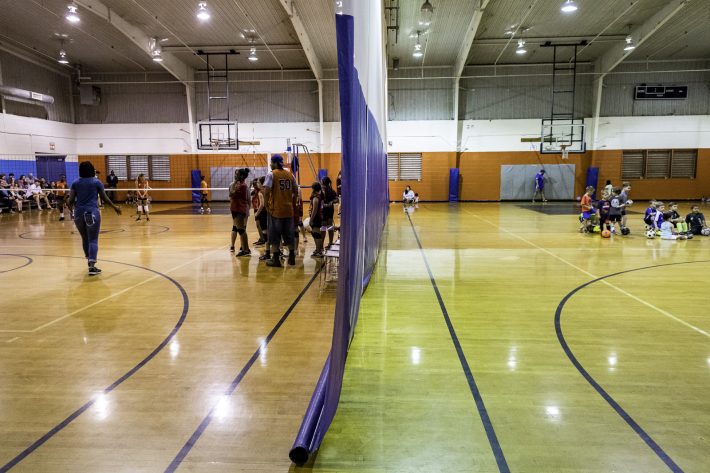
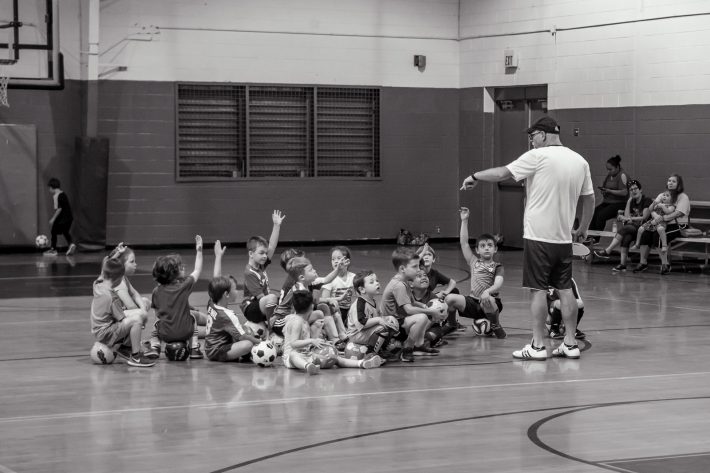
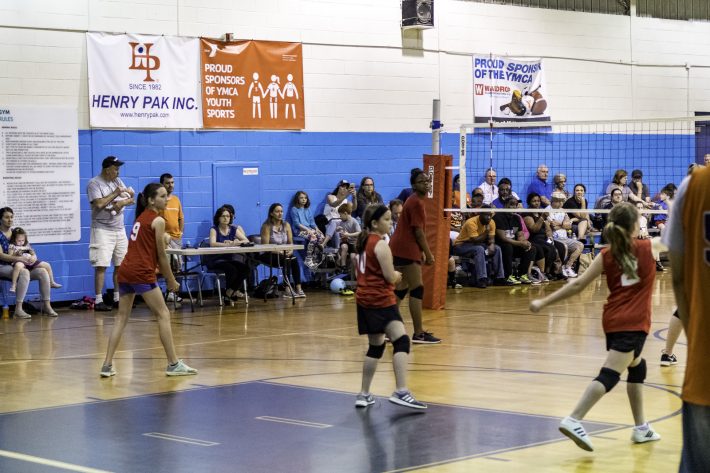
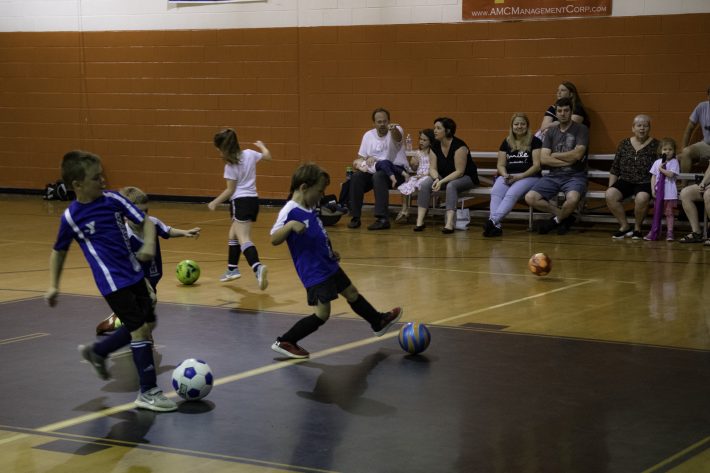
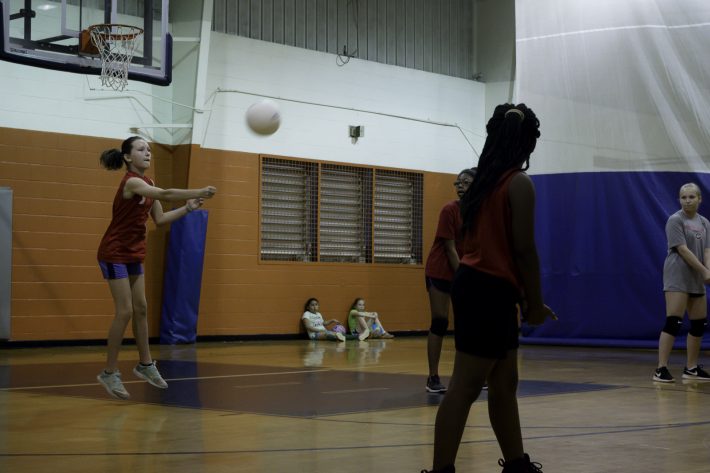
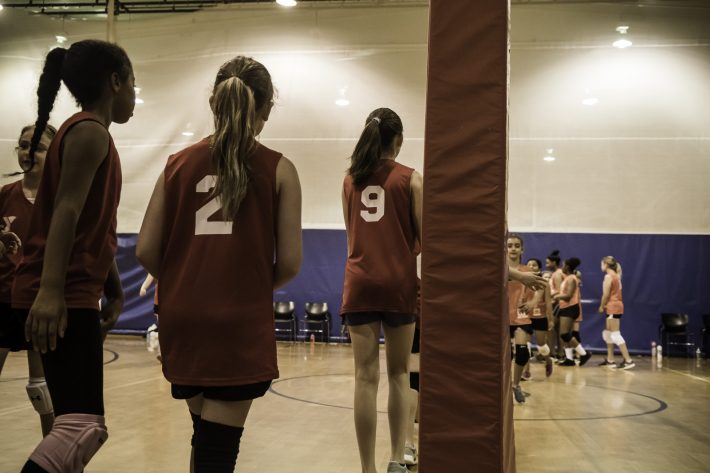
While the Girl was playing, the Boy was having soccer practice on the other half of the court due to the unpredictability of the weather this week. He finished his hour-long practice drench in sweat and as eager as ever to play more soccer.
It was a beautiful thing to see.
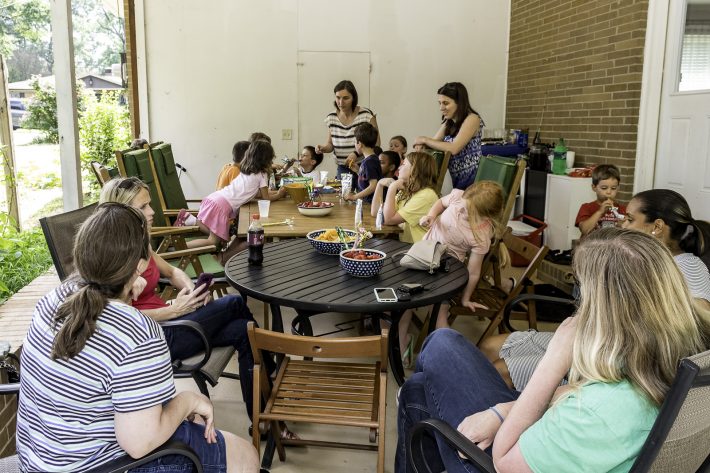
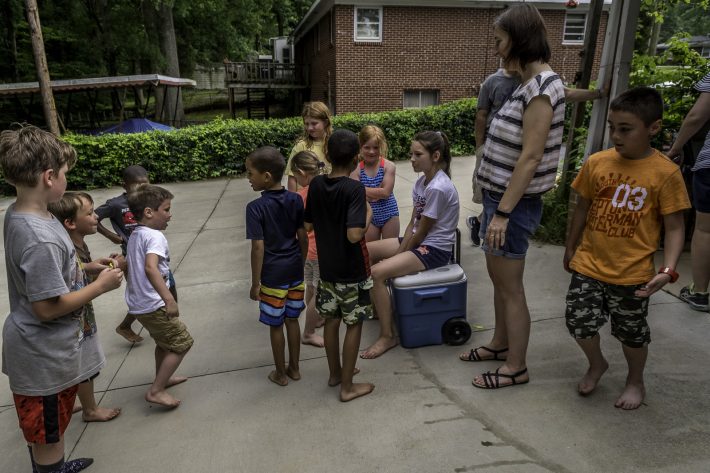
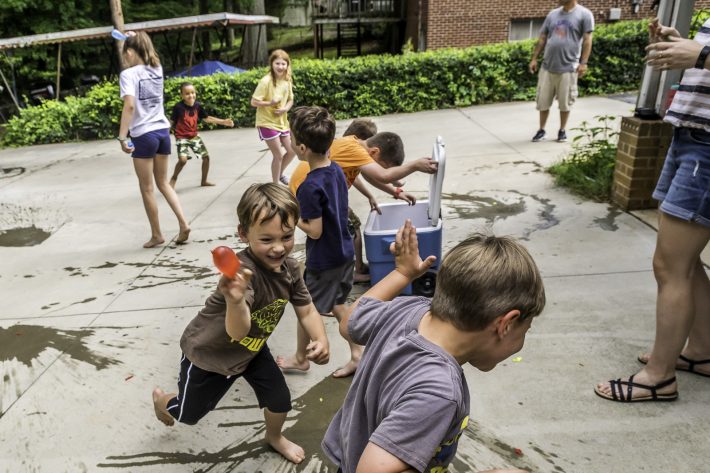
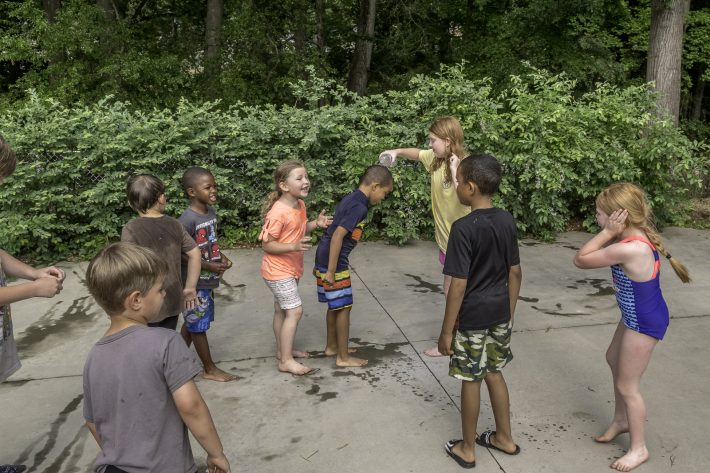
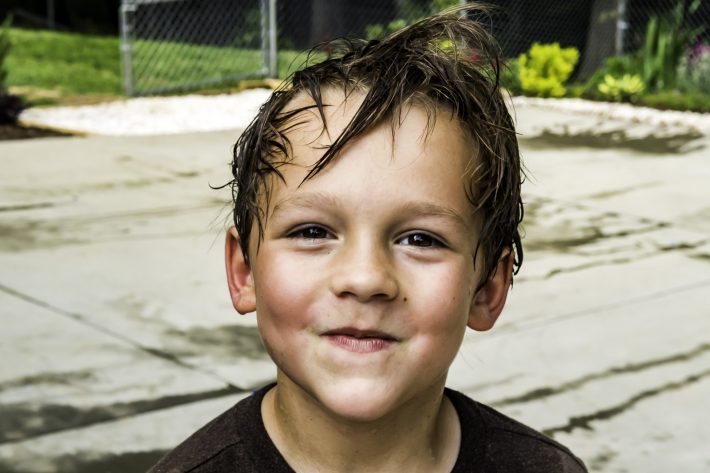
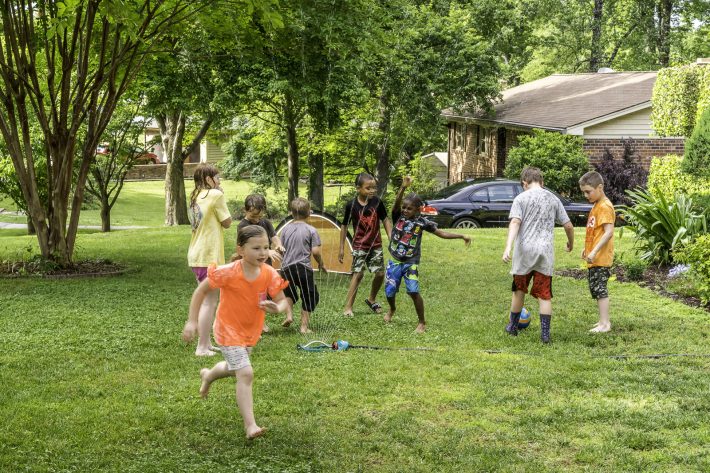
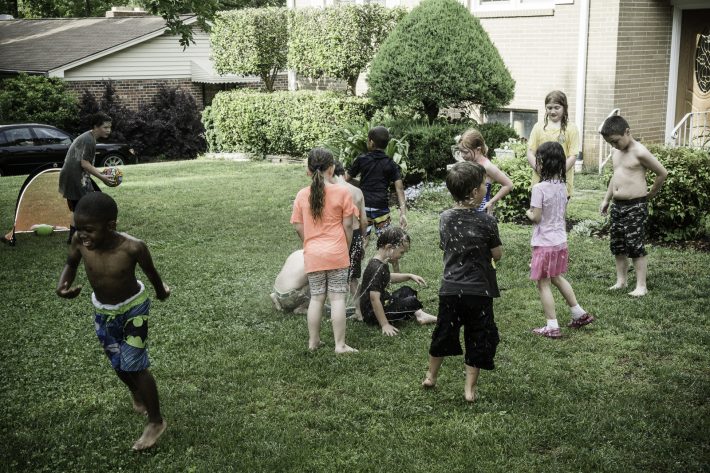
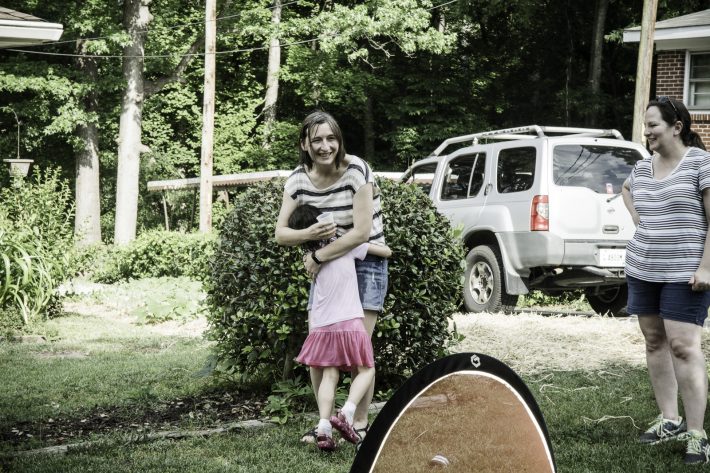
The afternoon brought the Boy’s birthday party. We had an old-school, kids playing in the yard party. There were water balloons, brownies, sprinker antics, chips, volleyball over the sprinker, soda, soccer in the sprinker’s mist, ice cream cake, trampoline flights, pizza, and endless laughs.
It was a beautiful day to experience.
M is K’s sister’s-in-law father, and he’s a keen chess player. I first played in him Krakow, at their apartment, in 2003 or so. We played one game, which lasted probably an hour and a half and went to roughly 40 moves, I’d guess. I knew I’d won with about 15 moves to go: he’d underestimated the queen-side attack I’d slowly been building.
Years later, when we went to Syptkowice to visit with them at their summer house, we’d always play. Since I’d won that first game, my ego was soothed, and I took more chances. In this particular game, those chances didn’t work out for me.
Sometimes, the Boy can be his own worst enemy. It’s true of all kids his age — and older. He’ll get upset about something, fuss about it, then escalate it when the resolution doesn’t appear to be going his way. The trick is to get him to see that habit and stop it.
Today he was upset about something. About what, it doesn’t really matter, but it involved L, who was helping me clean the bathrooms in preparation for the Boy’s birthday party Saturday. We have too much to do in too little time, so some of Friday’s cleaning shifted to today. The incident spilled over to a whine-fest with his mother, then with me. I sat him down and talked to him about what was going on.
“We’re all getting things ready for you. For your party. Every single thing we’re doing, we’re doing it for you. I think if someone was doing this much for me, I wouldn’t be upset because they weren’t paying enough attention to me at that moment. I’d be thankful. I’d say, ‘What can I do to help?'”
He calmed himself down with the little breathing exercise I taught him — basically, slow, measured breaths, in through the nose, out through the mouth — and then went to ask K if there was anything he could do to help. She set him to washing dishes, a chore he adores.
“Thank you for showing me how fun it is to work together today,” he told me in the midst of his toothbrush session. “If I’d kept fussing, I would have missed out on a lot of fun.”
Later that night, as we read Tashi in bed, Tashi had an opportunity to escape from bad guys who’d kidnapped him. He ran by the river, where he saw the wife of the Chief Bad Guy drowning. I stopped.
“Do you think Tashi should stop and help her?”
“No!” the Boy said incredulously.
“Why not?”
“Because she’s his enemy. If he helps her, she might just grab him and take him back to the other bad guys,” he explained earnestly.
“Or,” I said, thinking carefully how I could explain it, “she could be so impressed and touched that he helped her that she stops being his enemy.”
“Yeah, but in Smurfs: the Lost Village, when [some character whose name I don’t remember] fell of the boat and the Smurfs helped him out of the water, he said, ‘Yeah, but I’m still bad!’ and captured them. And it was their boat. They made it themselves!” His patience in explaining that was enchanting.
“Yes, that happens sometimes,” I replied, “but sometimes, something different happens. Sometimes they stop being enemies.” I knew this was going to happen in the book, and it rings true in my own life.
Just today, I had an encounter with a student that made me feel I was in Groundhog Day. During morning duty, I’m charged with keeping all the kids sitting in the hall quietly and the hall calm and to do this, we teachers enforce a basic rule: “You can whisper, but you can’t talk.” Suzie — not her real name, of course — always talks. She speaks in a fairly low voice, but she’s engaging her vocal cords, which means she’s talking. Plus, I can occasionally hear her thirty or forty feet away.
“Suzie, whisper please,” I said calmly. Respectfully. As I’ve done every day I’m on duty for the entire school year. Her response is to quiet her voice at first but to continue talking, not whispering. Her response to being redirected again is to suggest that because other people are also talking, that I’m unfairly targeting her. Today I explained the simple fact: “That’s because you’ve taught me to expect it from you. The other people are not consistently disobeying me. The other students do it once and a while; you do it every single day.” Again — quietly, calmly, respectfully.
Today, I talked to her about it again. It turns out, she doesn’t know what whispering is. “I am whispering,” she insisted. I explained again that if she puts her hand on her throat when she talks and she feels vibrations, she’s not whispering.
“Go ahead, try,” I said, smiling.
“No!” she cried, breaking into a smile herself. “It’s embarrassing!’
I pointed out to her that I wasn’t picking on her, that I in fact like her a lot and see a lot of potential in her. “As long as you can keep these little things under control.” (She also has a tendency to grow increasingly disrespectful when redirected multiple times.)
Here’s a girl that could have easily become my enemy. I could have simply snapped at her, signed her discipline card, or by this time, probably, simply have written an administrative referral. But instead of seeing an enemy, a rebellious little brat (like many adults would), I try to see something a little different: someone who just hasn’t had anyone take the time to show a genuine interest in her regarding the little things. It’s easier just to brush if off with sarcasm or a referral.
The funny thing is, in spite of the fact that she still grows disrespectful with me, I’m fairly certain she doesn’t see me as an enemy either. Sure, it’s not the same as saving the life of the wife of the bandit who threatened to pull all your nose hairs out like Tashi did, but it’s moving in that direction.
A busy evening for the Girl. Cross country try-outs from 6:00 to 7:15, then volleyball practice from 7:15 (obviously we were a bit late) to 8:15. Two things — sports, no less — about which she has never shown any interest until the last few weeks and now is bound and determined to participate in.
We arrived ten minutes early, and since the Girl is a rising sixth grader and most of the other kids were already attending the middle school, she stood around and looked like she felt a little lost. Friends were bantering back and forth, and she just stood and watched them.
She missed yesterday’s portion of the try-out due to her final choir concert for her elementary school, so as everyone began repeating the stretching and warm-ups from yesterday, the Girl was left looking around to see how everyone else did it. At one point, to stretch the quads, the coach told the kids to put their right hands on the shoulder of the kid to their right to help with balance. She did so, but the girl to her left didn’t put her hand on L’s shoulder. When it came time to repeat on the left side, L hesitantly reached her hand out to the girl on the left, noticed she still wasn’t balancing herself on anyone and managed to stretch without support.
How well I remember those moments of uncertainty at that age. Always looking about to make sure I’m doing what everyone else is doing. Trying hard not to call attention to myself in any way at all. Truth be told, I still behave that way in new environments with new people, but such a subdued L is an uncommon sight. I felt I was getting a little peek into what her first day of school might be like when, in a few short months, she begins middle school.
When did that happen? When did our little girl become a 5’3″ young lady who no longer looks like a little girl? I knew it was coming, but somehow I’d convinced myself it wasn’t just around the bend.
The try-out itself was instructive, for me and for L. She completed two miles in 22 minutes. It’s probably the longest distance she’s run. I sat in the car, reading (I’ve decided it’s time to reread a book that I promised myself fifteen years ago when I first read it that I would — must — read again, Steinbeck’s East of Eden), and I was aware of kids running in the field in front of the car, so I stopped and watched, waiting for the Girl. I was actually doing a bit of both, so when I didn’t see her, I just thought she’d passed by when I’d looked back down to read for a moment or two. Then I heard the kids behind me, laughing, complaining, resting. I went back to reading when a flash of blue caught my eye: L ran by, alone, dead last.
“I had terrible cramps,” she explained later.
“But do you know how proud you can be of yourself for not stopping?” I asked. It’s a big thing: our princess is learning to finish what she started, no matter what.
We jumped into the car and drove the few miles to the Y, where she’s going to be playing volleyball for the first time.
Almost everyone on the team is a complete beginner, so the coaches have to explain everything. The rules. Rotation. How to pass, to set, to serve. How to move once the ball is in play. At one point, L and a few other girls were on the sideline.
“You have to listen as I’m explaining to the other girls,” one of the coaches explains. “If you’re talking, you’ll have to run laps.”
A few minutes later, I heard him call out, “You three, take a lap!” L and two other girls began jogging around the court. I caught his eye, smiled, and gave him a thumbs up, which he returned, laughing.
After practice, I mentioned that to L: “Good job taking that lap without fussing,” I said.
“I wasn’t actually talking,” she explained. “I was just looking at the girl who was talking.”
“Better still,” I said.
That girl is maturing, I tell you.
E was born the day after Mother’s Day in 2012. This year, his birthday falls on the exact same day, the day after we celebrate K and Nana. So it was a long but wonderful day.
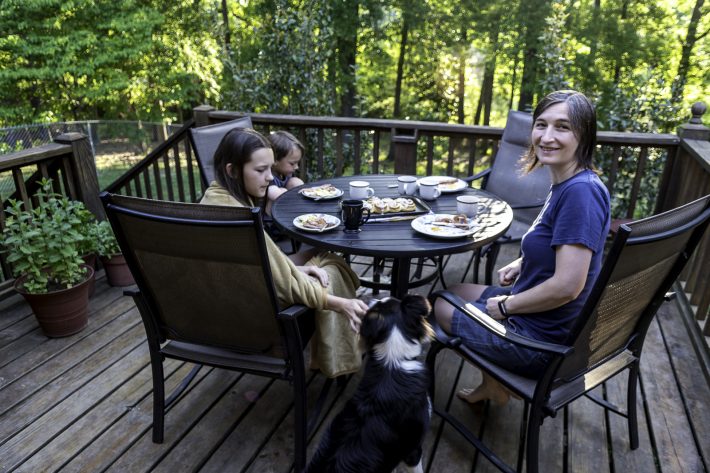
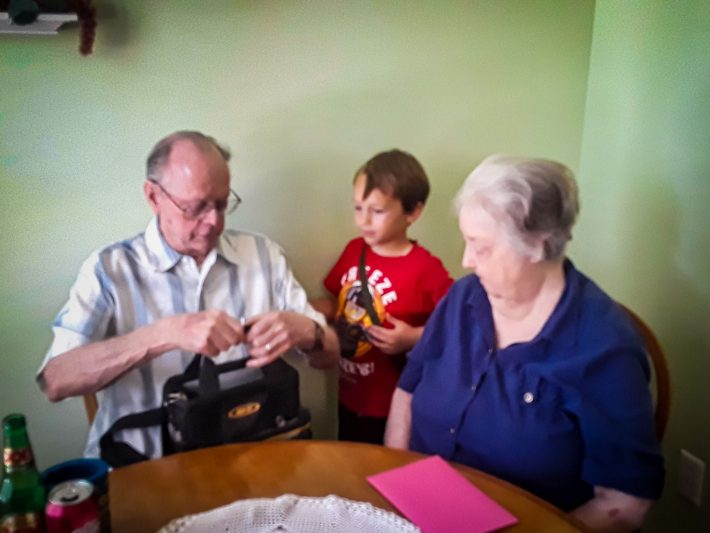
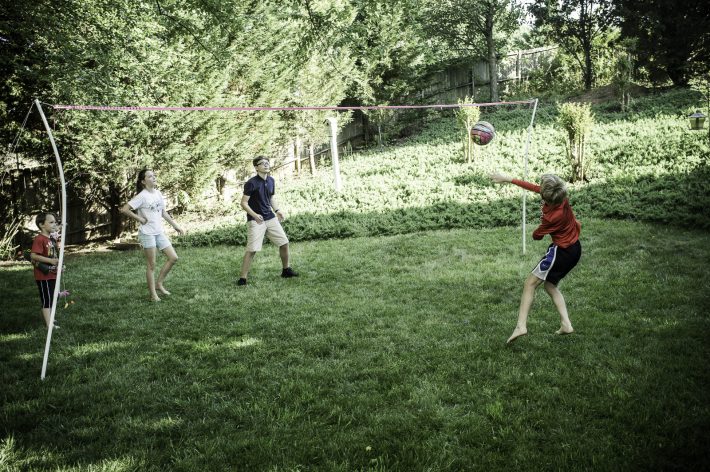
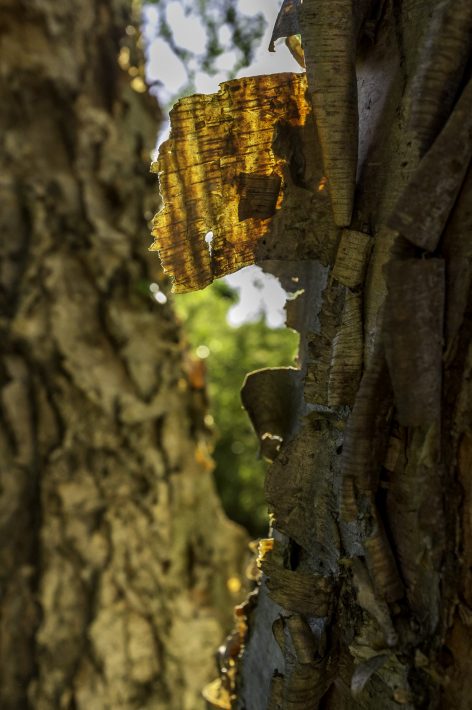
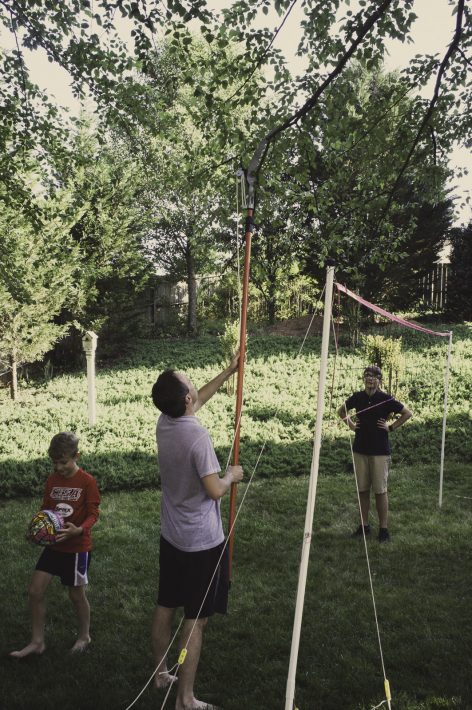

The bushes in front of the house had just gotten out of hand: they shaded almost 3/4 of the height of the windows in E’s and L’s rooms. Every time I trimmed them, K suggested that I didn’t do enough, so today was the day: the bushes were getting violently trimmed.

That was to take only a couple of hours. I’d planned on mowing the backyard, trimming the bushes, mowing the front, and finishing before four. Two things slowed me down: E and the difficulty of radically trimming the bushes.
The Boy always loves helping me mow, which usually entails slipping between me and the upper bar of the lawnmower, resulting in an awkward position for me and generally slow mowing. Today it struck me: our lawnmower has rear-wheel drive, and so theoretically, the Boy could mow all by himself, with me just walking along beside to help control it.
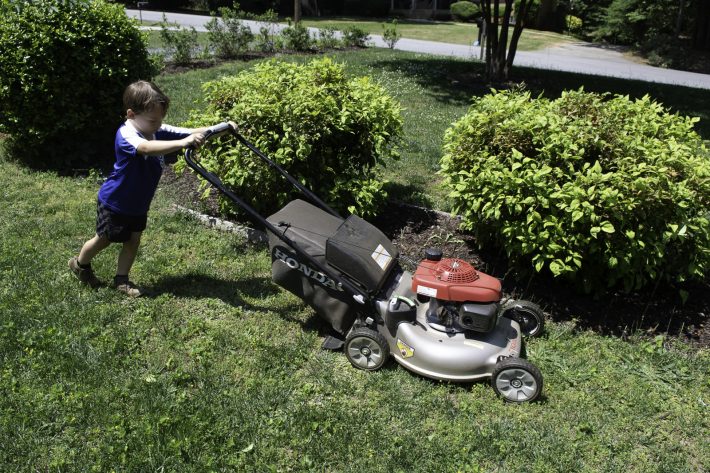
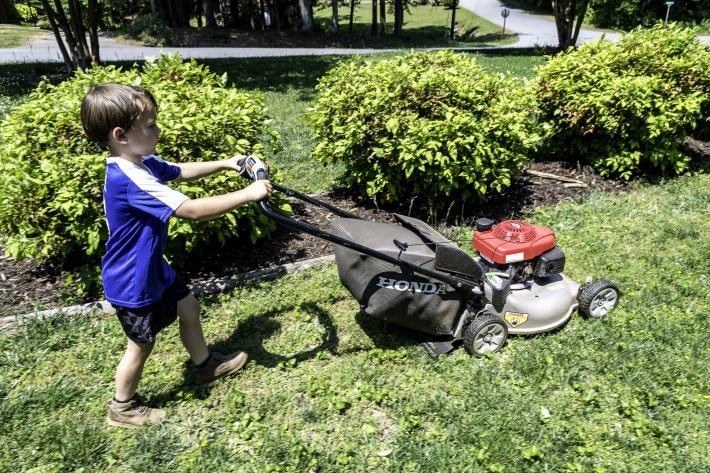
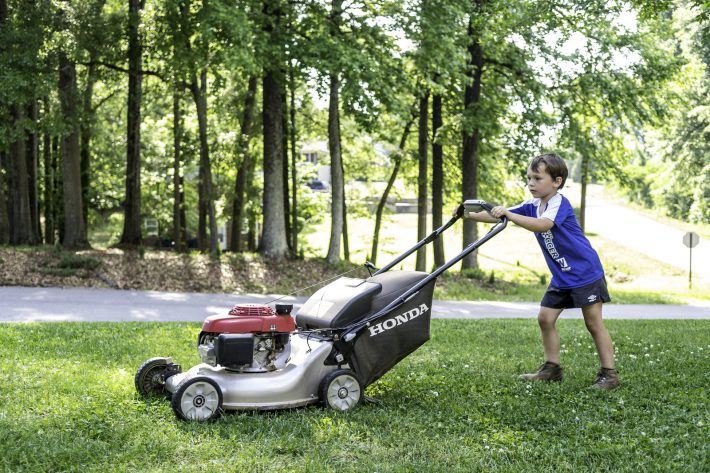
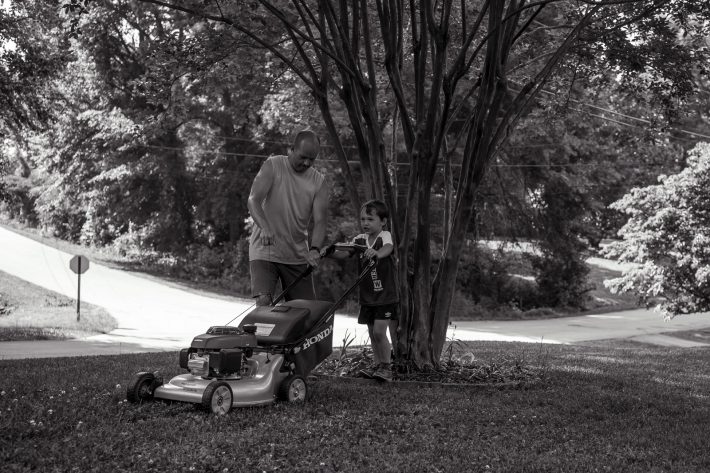
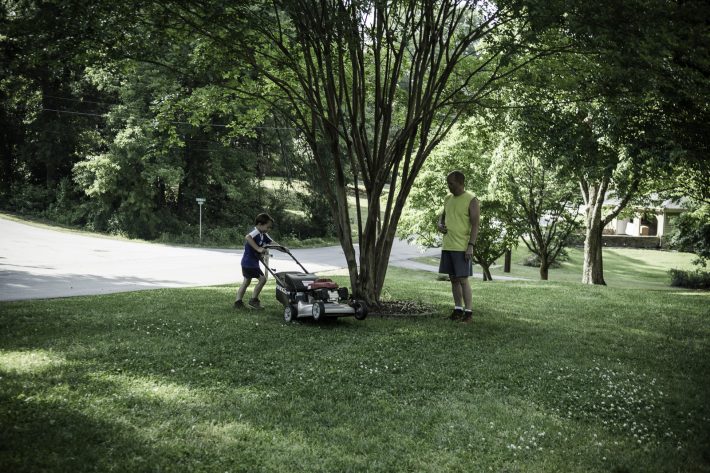
When we got to the flattest portions of the front yard, I let him mow without my hand on the bar to guide it.
“I’ll just let you mow,” I said, “and then the spots you miss, you’ll have to go back and get.”
He loved the idea and promptly went zig-zagging across the yard. He tended to pull to the left, so he made strange arching patterns instead of the regular straight lines I obsessively put into our yard.
The period of time between the first bit of mowing and the second bit (the “flattest portions of the front yard” mentioned above) was approximately six hours, evidenced by the changing shadows in the pictures above.
In the intervening hours, we worked on the bushes. I trimmed; he loaded the cuttings into the wheelbarrow.

When we started, the foliage was so dense that it blocked most of the light and all of the sky.

When we finished, nothing was really blocked. I worried as I cut back the branches that it might be too late for such work, that I might damage the bushes by doing this. In the end, I thought that that might, in fact, be a blessing.
In between the first and the second bushes — lunch and a concert.

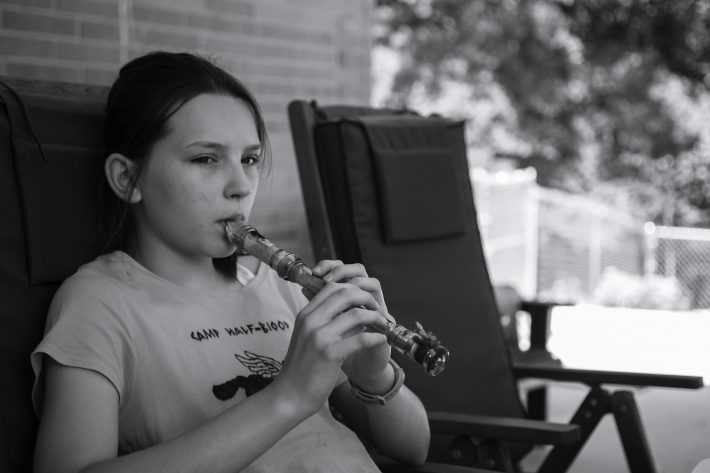
K and L spent most of the day inside, cleaning, cleaning, cleaning. Cleaning clothes, floors, bathrooms, and anything else that would sit still long enough. In the end, though, K had to come out: her garden beckoned.
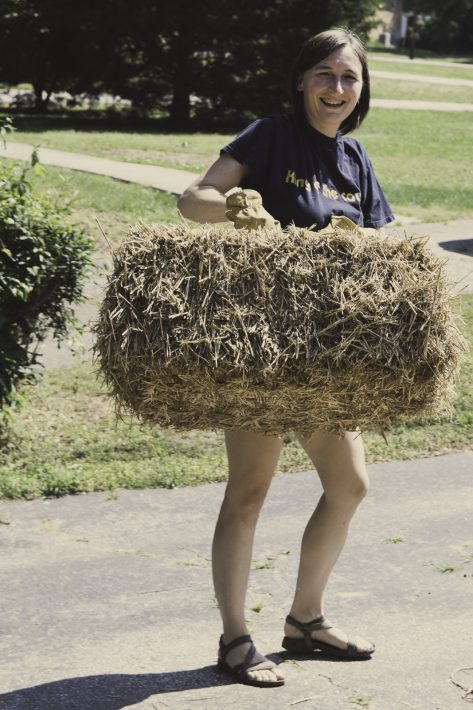
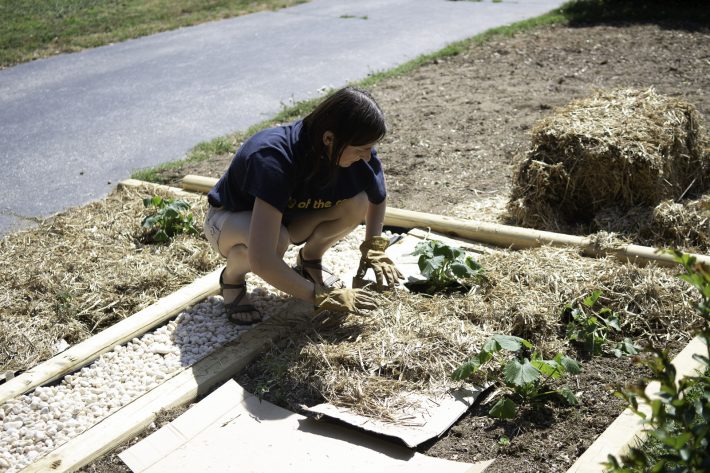
“When will we ever have a relaxed Saturday?” K asked as we sat on the front steps watching the kids, who still had energy, play in the front yard.
“A relaxed Saturday? What’s that?”